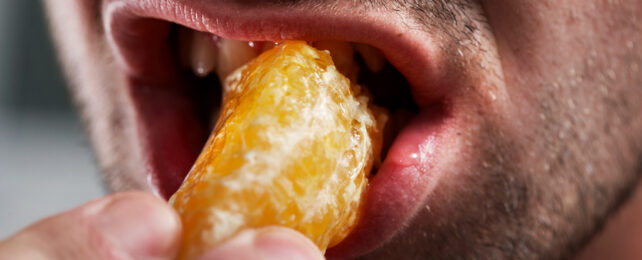While most people can relate to feeling uncomfortable when someone scrapes their nails down a chalkboard, those suffering from misophonia can have an equally intense reaction to sounds like slurping, snoring, breathing, and chewing.
A recent survey suggests misophonia is more prevalent than previously thought, and research from Europe suggests this condition shares genes with anxiety, depression, and PTSD.
University of Amsterdam psychiatrist Dirk Smit and colleagues analyzed the genetic data from the Psychiatric Genomics Consortium, UK Biobank, and 23andMe databases and found people who self-identified as having misophonia were more likely to have genes associated with psychiatric disorders as well as tinnitus.
Patients with tinnitus – a persistent, shrill ringing in the ears – are also more likely to have psychological symptoms of depression and anxiety.
"There was also an overlap with PTSD genetics," Smit told Eric W. Dolan at PsyPost. "This means that genes that give a sensitivity to PTSD also increase the likelihood for misophonia, and that could point to a shared neurobiological system that affects both. And that could suggest that treatment techniques used for PTSD could also be used for misophonia."
This doesn't mean misophonia and these other conditions necessarily have shared mechanisms, only that some of the genetic risk factors may be similar.
Previous research found people who experience misophonia are more likely to internalize their distress. Smit and team's research, published last year, also backed this up, showing strong links with personality traits such as worry, guilt, loneliness, and neuroticism.
Responses to a triggering sound can range from irritation and anger to distress that interferes with everyday life.
"It has been argued… that misophonia is based on the feelings of guilt about the evoked irritation and anger rather than behavioral expressions of anger itself that causes the distress," explains Smit and team.
People with Autism Spectrum Disorder (ASD) were less likely to experience misophonia. This was unexpected as those with ASD have a decreased tolerance to sounds.
"Our results suggest that misophonia and ASD are relatively independent disorders with regard to genomic variation," the researchers write in their paper. "It raises the possibility that other forms of misophonia exist, one that is mostly driven by conditioning of anger or other negative emotionality to specific trigger sounds moderated by personality traits."
Smit and colleagues caution their data was mostly European so the same links may not show up in different populations. What's more, misophonia was not medically diagnosed in their data samples, only self-reported which may also skew the results.
But their study also provides clues for where further research could focus to find the biological mechanism behind misophonia.
This research was published in Frontiers in Neuroscience.
